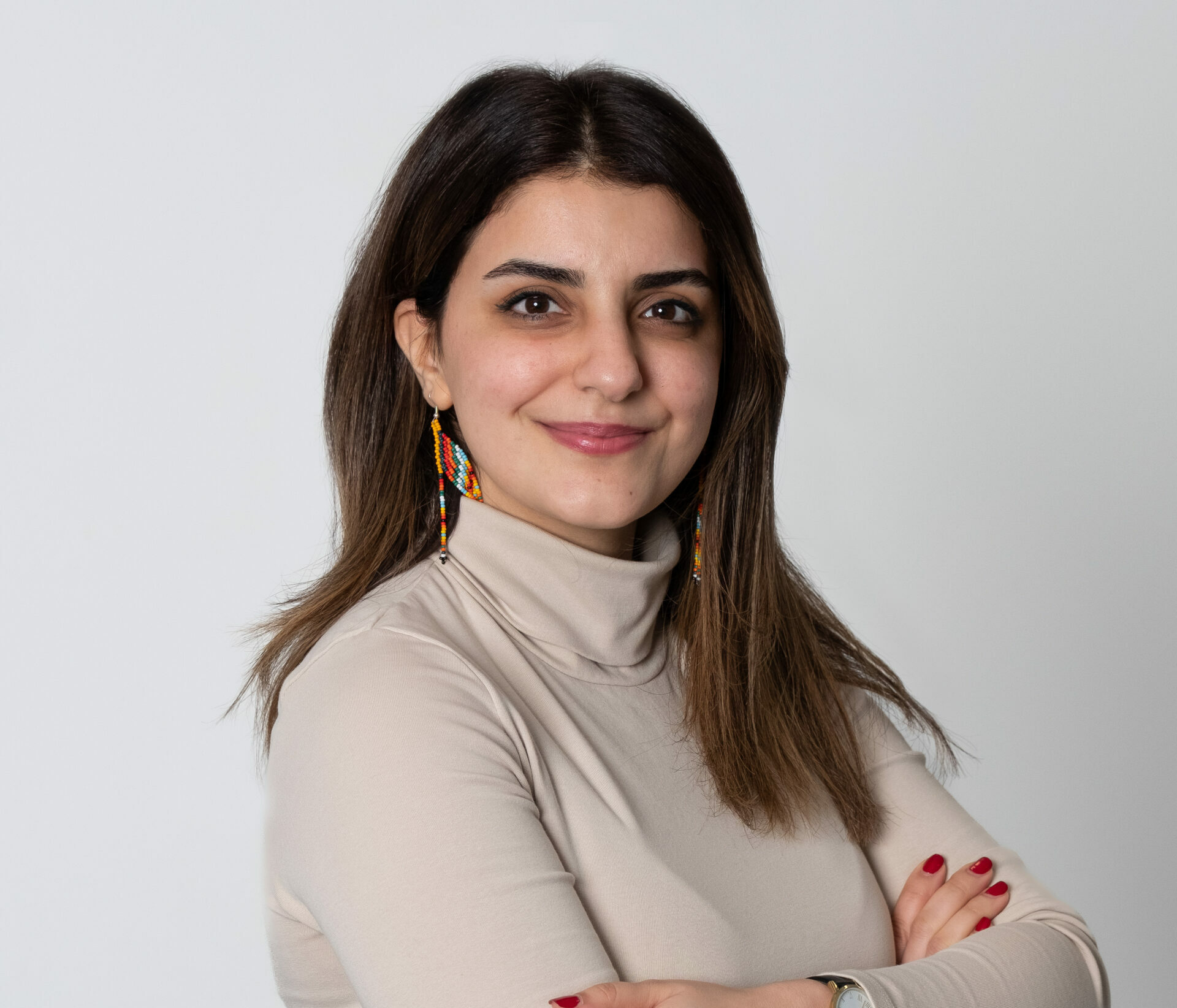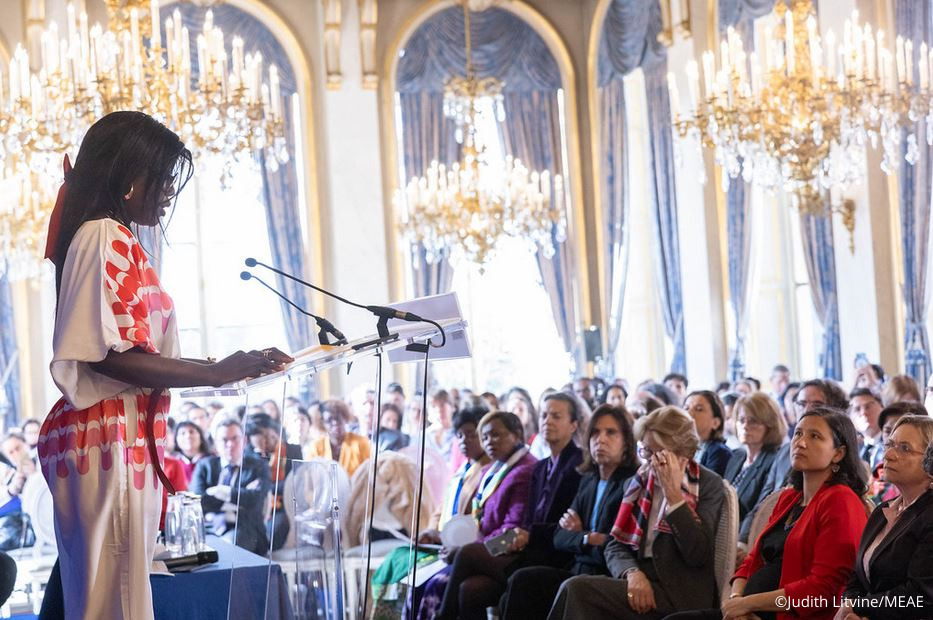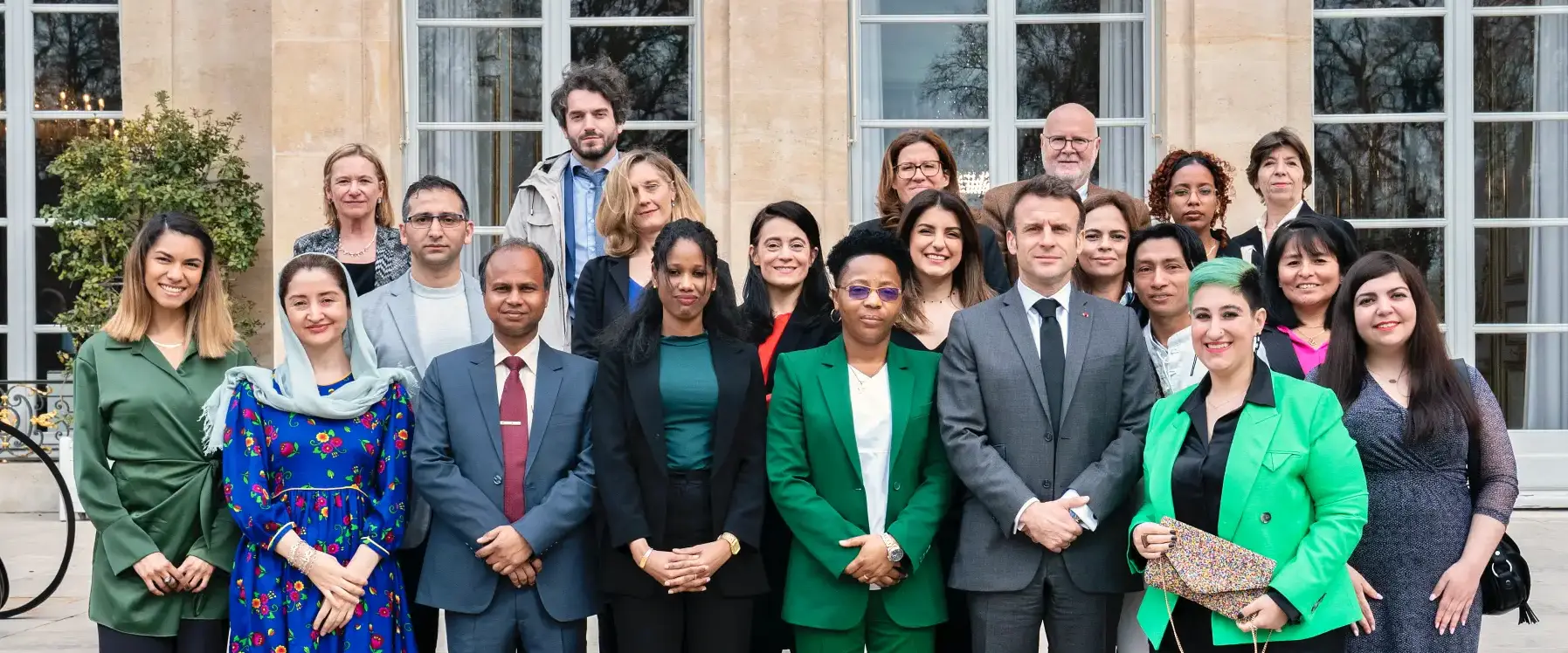
Description
Asma Darwish is a human rights defender of Arab-Persian origin living in France. She was actively involved in the Arab Spring protests in 2011 in Bahrain, her home country. As an international advocate for women's rights, freedom of expression and civil and political rights, she has already written numerous articles and participated in several academic works. Over the years, Asma has worked and continues to work with NGOs to develop their human rights strategies and campaigns.
Interview with Asma Darwich - August 2, 2023
Could you please introduce yourself?
My name is Asma Darwish and I'm a human rights defender from Bahrain, settled in France as a political refugee since 2015.
I live in Tours and work as an entrepreneur in the field of human rights communications, helping NGOs to set up campaigns, use advocacy tools and give their cause international reach. I currently work as a campaigner for an organization called CIVICUS, which is an alliance of civil society organizations from all over the world. It has over 15,000 member partners.
Could you tell me more about your project and your association?
I'm involved in a project within CIVICUS called "We Rise Initiative", which I co-direct.
This project brings together civil society organizations that are members of CIVICUS, in order to reflect and work collectively, in the form of workshops, on the implementation of advocacy tools, awareness-raising campaigns and training courses.
These tools will be used in the design of local campaigns adapted, through a community-based approach, to each issue, under the aegis of the global CIVICUS campaign. The aim is to use these local campaigns to create a broader civic space in which freedom of association is protected and promoted.
How did the Marianneinitiative help you make your project a reality? What activities did you find most useful during the program?
When I joinedInitiative Marianne, the projects I wanted to develop weren't entirely concrete. My main objective was to strengthen my network, my relationships and my knowledge of the human rights ecosystem in France. The MarianneInitiative enabled me to take part in meetings and exciting encounters with numerous players in France (politicians, human rights organizations and civil society), which I can now draw on to strengthen my work on human rights issues.
I also had the opportunity to speak at various conferences and round tables, which was really great. Before, I didn't dare speak at these conferences or round tables in French, and I was really encouraged to do so by the MarianneInitiative operators, which I really appreciated.
Have you kept in touch with many of the program's other winners?
Since the end of the program, I haven't been in regular contact with the winners. Throughout the program, we collaborated and shared many things: sharing the same space with people from different countries and cultures inevitably posed a few challenges at first, which we eventually overcame. We each told our stories, shared our experiences and know-how, and learned a lot from each other. Communication wasn't always easy, but for me it's not a negative thing - in fact, it's essential to be able to handle difficult situations and communication.
Would you like to add anything?
I hope that what we have worked on and begun to develop over these six months will not stop at the end of the program. I hope that the projects undertaken by each of us can be continued, and that the concerns and requests we have formulated will continue to be followed up.
I hope that the collaboration and networking opportunities, the chance to speak at such conferences, in such environments, will continue. I would be more than willing to continue working within the framework of the Marianneinitiative, with all the players, whether it's the association, the ministries we've worked with, or civil society organizations.
Do you have a question? Please contact us!
Contact

